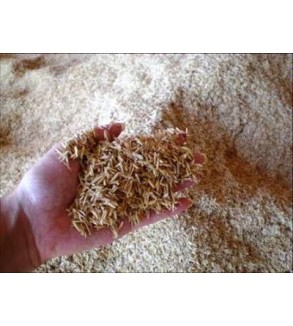Ecological Firewood Biobrasa
Ecological Firewood
Ecological firewood is a type of solid fuel produced sustainably and with practices that minimize environmental impact. Unlike traditional firewood, which can be obtained indiscriminately and contribute to deforestation, ecological firewood is produced from renewable and responsibly managed sources. Here are some characteristics and benefits of ecological firewood:
Characteristics
Renewable Sources:
Reforestation: Ecological firewood is often obtained from sustainably managed and planted forests, such as eucalyptus, pine and other fast-growing species.
Wood Waste: It can be produced from wood waste from the timber industry, such as shavings, sawdust and chips, which are compacted into briquettes or pellets.
Certification:
FSC and PEFC: Ecological firewood can be certified by organizations such as the Forest Stewardship Council (FSC) and the Program for the Endorsement of Forest Certification (PEFC), which guarantee that the wood has been produced responsibly.
Processing:
Drying: Ecological firewood is often dried in a controlled manner to reduce moisture, which improves combustion efficiency and reduces emissions.
Compaction: Wood waste can be compacted into briquettes or pellets, which are denser and have a higher calorific value.
Benefits
Sustainability:
Reduced Deforestation: The production of ecological firewood helps to reduce pressure on native forests, contributing to the conservation of biodiversity.
Reforestation: Plants of fast-growing species can help to restore degraded areas and improve soil quality.
Energy Efficiency:
High calorific value: Ecological firewood, especially when dried and compacted, has a high calorific value, which means that less fuel is needed to generate the same amount of heat.
Energy Efficiency:
High calorific value: Ecological firewood, especially when dried and compacted, has a high calorific value, which means that less fuel is needed to generate the same amount of heat.
Low Moisture: The low moisture content of organic firewood improves combustion efficiency and reduces smoke and pollutant emissions.
Emission Reduction:
Fewer Pollutants: Burning organic firewood generates fewer emissions of pollutants, such as particulate matter and volatile organic compounds, compared to traditional firewood.
Carbon Neutral: Burning organic firewood is considered carbon neutral because the amount of CO2 released during combustion is equivalent to the amount absorbed by the tree during its growth.
Economics:
Cost-Effectiveness: Organic firewood can be a more economical option compared to other fuels, such as oil and gas, especially in rural areas or where wood is abundant.
Price Stability: Prices for organic firewood tend to be more reasonable compared to fossil fuels, which are subject to market fluctuations.
Considerations
Sustainable Management:
Agricultural Practices: It is important to adopt sustainable agricultural practices to ensure that the production of organic firewood does not cause negative environmental impacts.
Certification: Choosing certified firewood ensures that the wood was produced responsibly.
Efficient Equipment:
Stoves and Boilers: Using efficient and modern combustion equipment can further improve combustion efficiency and reduce emissions.
Maintenance: Wood-burning equipment requires regular maintenance to ensure its performance and safety.
Ecological firewood is a sustainable and efficient alternative for heating and energy production, offering a solution that combines environmental and economic benefits.
visibility
View


